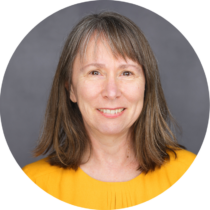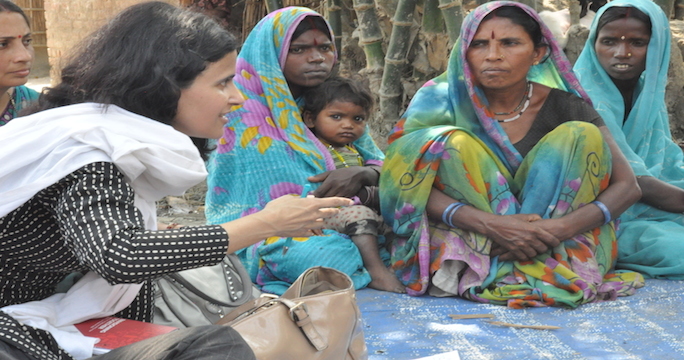I’m currently in the state of Bihar, northern India, alongside our research partners (Institute for Development Studies and Praxis) as they launch their 3 year evaluation of our first hotspot.
One of the top priorities for the evaluation is to find out whether the program’s activities are truly relevant and effective for the participants, primarily individuals in slavery and those affected by trafficking. In part, the evaluation will help local partner organisations and communities to articulate and express the pathways out of slavery that they are finding. At the same time, IDS and Praxis’ documentation of what is or is not being achieved will give the Freedom Fund a robust measurement of the changes taking place.
Even on the second day of the activities, I can see that this approach is already adding value to the work. For example, I was with 14 of the members of a village Self-Help Group (SHG) in a hamlet where slavery affects nearly every family, and Rituu (one of the researchers) helped the SHG members to reflect on their accomplishments over the past 6 months, since they began the SHG. They talked about a number of recent incidents where they had acted collectively, such as when they intervened to stop a 10 year old boy being sent off for work.
The women were excited: “We feel happy and satisfied that we did this. It’s our future. What we have gone through, we don’t want the children going through, even if it’s someone else’s child”.
But Rituu challenged them: “There are only 20 members in your group – and so many families in the hamlet – what should be done?” The women started to say that the local Freedom Fund partner organisation, IDF, could set up more SHGs. “But what about your own experience in setting up the SHG?” asked Rituu. “Oh yes, maybe we can help them set up the SHG!” exclaimed the women. Rituu concluded, “Yes, if you take a lead in setting up the SHGs in your village, you can do much more than the NGO staff as they are limited in number and there is a limit to the number of times they can visit you.”
These kinds of conversations are just a small part of the in-depth evaluation over the coming three years. IDS will also focus on participatory statistical methods as a cost-effective and scalable model for measuring prevalence of all forms of slavery in a sample of villages where partners are working. The first survey will begin in June, and will then be carried out again in 2017, to learn about progress made in reducing slavery in these communities. The survey will also look at a variety of systemic changes taking place in these villages (for example, changes in effectiveness of government services) that have potential to reduce levels of slavery in a much wider area.




